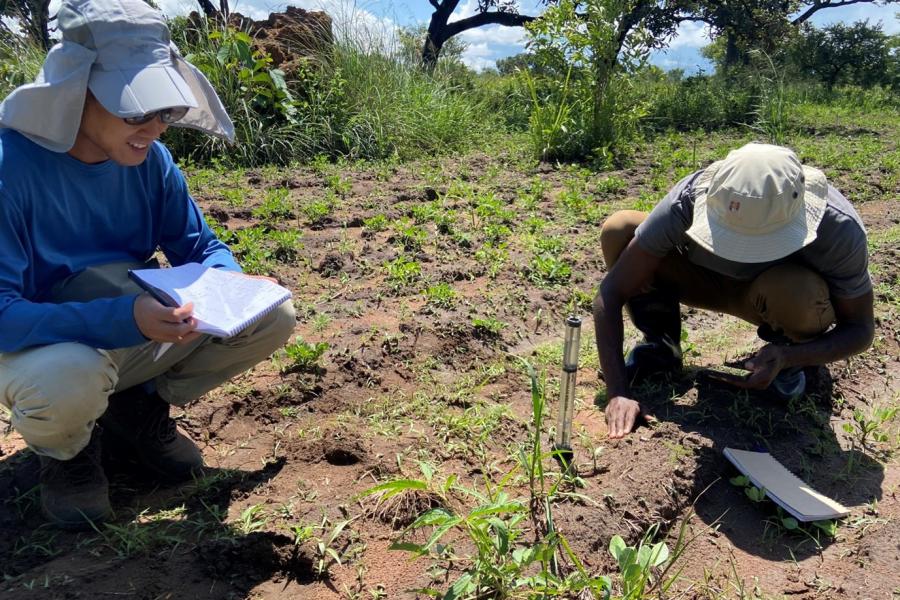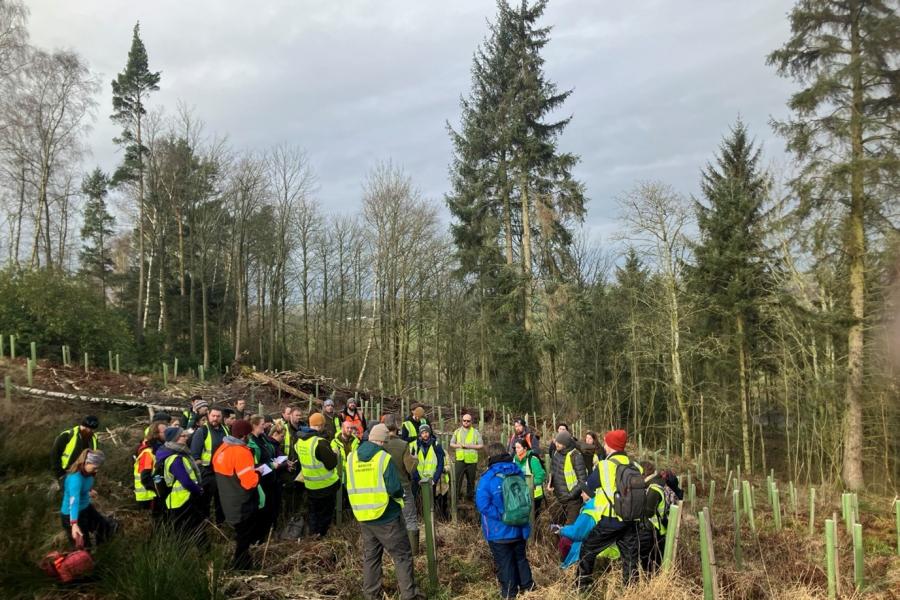Bangor University's Forestry MSc Programmes Branch Out with Unprecedented Flexibility and Cutting-Edge Modules
Bangor University, a renowned leader in forestry education with a legacy spanning over a century, is revolutionizing its Master of Science (MSc) programmes.
Bangor University, a renowned leader in forestry education with a legacy spanning over a century, is revolutionizing its Master of Science (MSc) programmes. Building on its impressive ranking of 2nd in the UK for Agriculture and Forestry in The Times/Sunday Times Good University Guide 2024, the university is now offering unparalleled flexibility and a suite of innovative modules designed to cultivate the next generation of forestry and agroforestry leaders.
With a rich history in forestry dating back to 1904 and over 4,000 graduates from more than 100 countries, Bangor University stands out as a beacon of excellence in forestry education. Its four prestigious MSc programmes – MSc Agroforestry and Food Security, MSc Forestry, MSc Environmental Forestry, and MSc Tropical Forestry – are all accredited by the Institute of Chartered Foresters, signifying their reputation for quality and relevance.
Reflecting on her experience, recent graduate, Rebekah D’Arcy, said “It has been very rewarding to journey through my MSc with fellow students from all over the world learning about different perspectives and practices in forestry. I particularly enjoyed modules that pushed me out of my comfort zone.”
Following a comprehensive review and revalidation, Bangor University is delighted to announce a significant expansion in MSc study options. Students can now pursue their MSc degrees in person (on campus) or through distance learning, with flexible durations of 1, 2 or 3 years. This allows individuals from all walks of life, whether they prefer on-campus immersion or the convenience of remote study, to tailor their education to their unique needs.
"We understand that today's students require flexibility," says Dr Eefke Mollee, director of MSc Agroforestry & Food Security. "Our enhanced MSc programmes are designed to empower students to achieve their academic and professional goals, regardless of their circumstances. Whether you're a working professional, a parent, or located overseas, you can access our world-class forestry education."
Furthermore, each MSc programme has been enriched with a range of new, cutting-edge modules, ensuring graduates are equipped with the latest knowledge and skills for a career in which they can play a leading role in tackling the climate and biodiversity crises, while sustaining wood and food production, and human wellbeing. These include:
- Fundamentals of Soil and Water: “Mastering key soil and water management principle to conserve carbon, reduce flood risk and make informed land management decisions”
- Timber and Wood-Based Products: Exploring the sustainable utilization of timber resources within a circular economy in the context of rapid technological innovation.
- Ecological Restoration: Learning to restore and revitalize degraded ecosystems.
- Forest Protection: Understanding and mitigating threats to forest health.
- Business Planning for the Green Economy: Developing entrepreneurial skills for sustainable ventures.
- GIS for Forestry and Land Management: Harnessing geospatial technologies for effective management to maximise the delivery of ecosystem services at a landscape scale.
These build on our existing set of modules delivering learning in core components of:
- Forestry, including Silviculture; Forest Inventory, Assessment and Monitoring; Forest Management Planning; Forest Ecology; Social Issues in Forest Management; Forest History, Policy and Management; Urban Forestry,
- Agroforestry including Agroforestry Systems and Practices; Natural Resources Management; Global Food Security; Agriculture and the Environment, and
- MSc Dissertation research project.
Notably, the pioneering MSc Agroforestry and Food Security degree directly addresses the grand challenge of combining the global imperative of food security with maintaining the crucial benefits provided by trees and forests. Likewise, the MSc Environmental Forestry places a strong emphasis on woodland management practices that prioritise resilience and biodiversity conservation, as evidenced by the in-depth exploration of forest ecology and ecological restoration within its curriculum.
Regardless of study mode, all students participate in a residential study tour, providing an invaluable opportunity for hands-on learning and networking. These immersive experiences foster a strong sense of community and enhance the practical application of theoretical knowledge.
"The residential study tours are a cornerstone of our programmes," adds Dr Bid Webb, director of MSc Environmental Forestry and MSc Tropical Forestry. "They bring together students from diverse backgrounds and locations, creating a truly global learning experience."
"We are incredibly proud of the comprehensive and forward-thinking nature of these programmes," states Dr James Walmsley, director of MSc Forestry. "The new modules and flexible study options reflect our commitment to providing students with the skills and knowledge they need to make a real difference in the world of forestry and sustainable land management."
Bangor University's commitment to excellence and innovation ensures that its MSc forestry programmes remain at the forefront of education, preparing graduates to tackle the critical challenges facing our planet's forests.



